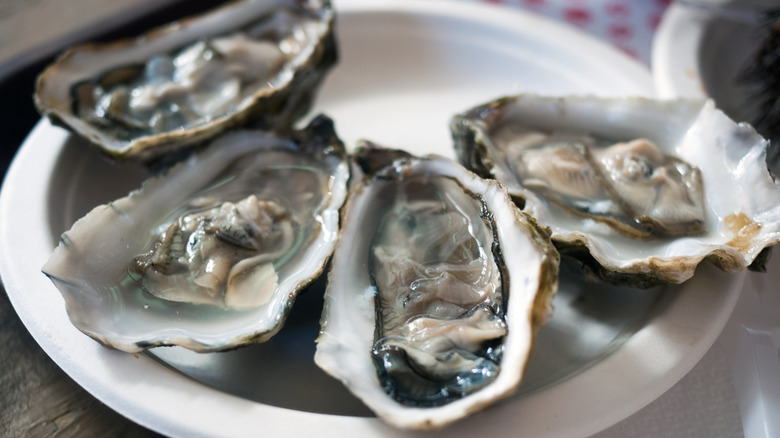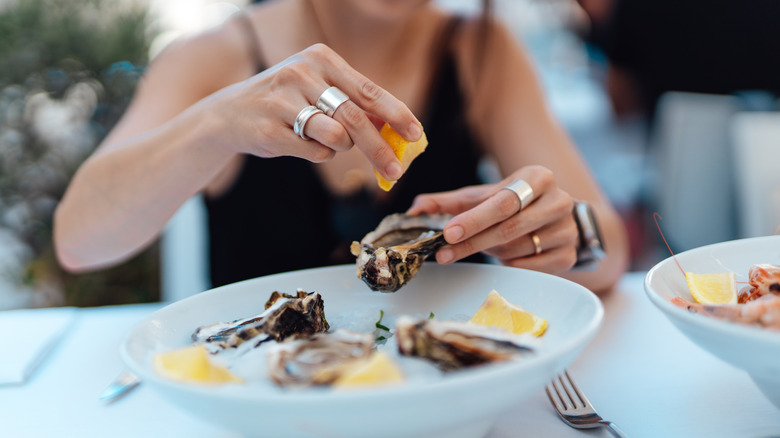The Essential Garnish You Need To Serve Oysters On The Half Shell
Like salt, lemon juice is a natural flavor enhancer, but it won't overpower a dish if you accidentally use too much of it, unlike the former. It also imparts a fresh and clean flavor when added, and is one of few ingredients proven to actually make your mouth water (acidic foods increase salivation, which aids in the tasting process).
As such, people have harnessed the power of this piquant liquid in countless ways over the years, from its most obvious use in lemonade, to more unconventional purposes like as a spritz for slices of fresh watermelon. However, we seem particularly obsessed with squeezing it over seafood (think fresh fish, scallops, lobster –- the list goes on and on). Lemon juice is an especially good friend to oysters, whose famously briny flavor comes to life with just a few small drops of the stuff. In fact, it's the only garnish you need on them at all.
Why lemon juice is the only garnish you need
Indeed, oyster purists will tell you that the only real way to eat these juicy shellfish is with a wedge of lemon, squeezed sparingly over the top. The idea is that more complicated preparations like vinaigrettes may detract from their prized saltiness; lemon juice, on the other hand, works to enhance and complement this. Using a simple, one-ingredient garnish like lemon juice also allows the oyster's unique merroir to shine through (oysters, like wine, have specific nuances to their flavor, depending on where they come from. This is known as their merroir). All in all, serving oysters with lemon juice is considered one of the most common ways to enjoy this delicacy, and is a particularly popular option in countries like France.
Its suitability as a flavor is not the only reason why you should use lemon juice to garnish oysters. Lemons are widely available and generally cheap to purchase (especially in season), making them a permanent fixture in most people's fruit bowls. When shopping for lemons, look for heavy, vivid colored fruit (a heavier lemon means more juice) and regular lemons, rather than Meyer. As the time to crack open the oysters finally arrives, simply slice the lemons into wedges (pop out the pips first for a more seamless oyster eating experience) and squeeze just a little juice over each one before slurping them back in all their briny, salty glory.

